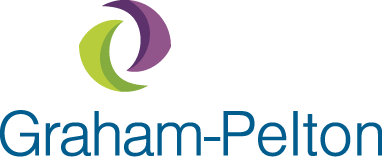There is a powerful old saying in the fundraising world: “If you want money, ask for advice. If you ask for money, expect advice.” Any experienced development professional will agree that contributions of significance generally follow extended conversations during which donors share the thoughts, dreams, and expectations that inspire their giving.
How many development officers have heard board members and others say the following: “All they ever do is ask me for money!” If you often hear that sentiment, then you are likely failing to engage donors in conversations that can multiply their contributions to the organization.
One of the highest compliments a person can pay to another is to ask for advice. If the request for help is honest and forthright, it can significantly strengthen the relationship between donor and institution. But the request cannot be contrived, and the advice given by the donor must be taken seriously. Otherwise, the donor will feel the insincerity and probably walk away.
Fundraisers must think of donors as investors who have built whatever fortune they have through a lifetime of hard work and determination. Their assets represent achievement, and parting with their assets is viewed as a continuation of that hard work and determination. Donors want to see a meaningful return on their charitable investment, and it is the organization’s job to demonstrate how the contributed money makes a difference in the lives of others.
How to ask donors for advice
Make your request specific
When you ask potential donors to support a particular program, be sure to engage them in a meaningful conversation about the program’s importance and the impact of their gift. Part of the conversation should include you asking for their guidance on how to make the program truly successful. Be as specific as possible in the questions you ask to clearly demonstrate that their input is important and will have influence.
Be certain to directly connect the topic at hand to the background and expertise of the donor. Show that you know them and have done your homework. Draw a parallel between the current circumstance your organization faces and something specific from the donor’s experience. Allow them to tell you their story, and then continue to make a direct connection to why their advice and guidance are so valuable.
Know your audience
Asking for advice can be a true challenge for leaders in academia, healthcare, and other nonprofit organizations. CEOs, presidents, deans, faculty, and other leaders have achieved their positions through personal expertise and intellect. They are accustomed to leading others, and often consider themselves to be the smartest person in the room. And truthfully, who on the operating table does not want their surgeon to actually be the smartest person in the room?
So it sometimes requires a radical change in attitude and behavior for leaders to be effective at fundraising. They must sincerely view the donor on the opposite side of the table as their equal, if not someone they admire. And most donors understand how busy and complicated the lives are of the leaders sitting across the table from them. Think then what a compliment it is to that donor when the CEO of her favorite charity seeks her advice and guidance on a critical issue.
If you are dealing with a couple, involve both of them if at all possible. Even if one of them is clearly the overachiever, they did not get there alone. It will not be lost on either one of them that you went out of your way to ask for advice from each of them. And besides, you never know for certain how any particular couple makes important decisions about giving.
Meaningful opportunities to ask donors for advice
You can ask for advice and guidance from your donors in any number of ways. Of course, there is always a fine line between seeking input and staff ultimately being responsible for decision making, but a fundraising professional should learn to walk that line with ease.
Here are some opportunities where donors can have meaningful input, apart from the specific program or project you are asking them to support:
- Evaluating and prioritizing campaign goals and objectives
- Reviewing draft case statements, videos, websites, and other communication vehicles
- Developing agendas for upcoming meetings and retreats
- Providing legal or financial expertise
- Connecting the organization with potential donors that they know
- Finding new board members
- Advising on management and organizational structure
- Assisting with policies and procedures
- Serving on search committees for important positions
- Advocating on behalf of the organization politically
- Helping with special events
- Recruiting non-board members to serve on subcommittees in areas of expertise
- Forming non-fiduciary boards and committees dedicated to specific priorities and programs
- Creating ad hoc committees to deal with a specific issue or crisis, drawing upon those who can provide strategic advice in those circumstances
By asking donors for valuable input, you will deepen their relationships with your organization. And when they feel truly invested, you will receive a return on your investment of time and energy in the form of increased contributions. As well, more often than not, wise donors will contribute meaningful ideas for making the charity they care about even better.

